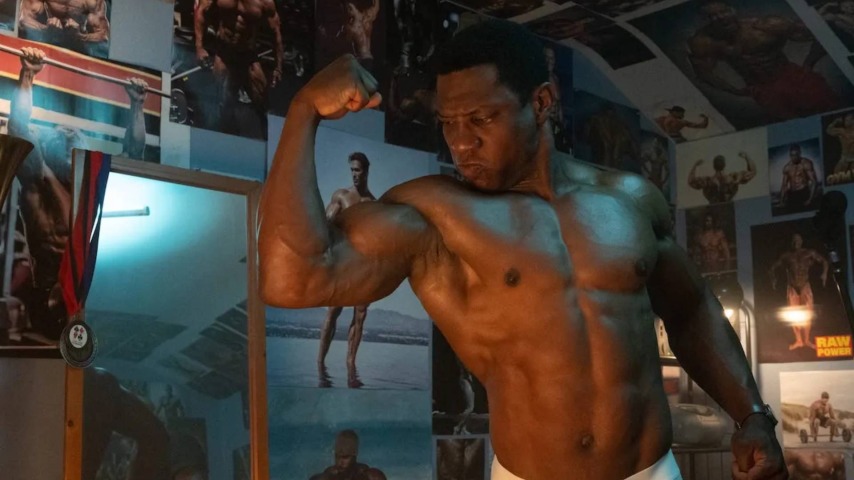Magazine Dreams devolve into exhausting tragedy
Jonathan Majors' crimes tainted its release, but the film is so miserable and overburdened that it would be a failure anyways.
Photo: Briarcliff Entertainment
Jonathan Majors’ 2023 arrest and conviction for domestic assault make up the hummock of the iceberg that sank Elijah Bynum’s sophomore feature, Magazine Dreams, months after Searchlight Pictures parlayed the film’s Sundance raves into awards season buzz. The bummock of that iceberg, however, is the movie itself, an unmitigated disaster and reckless display of lazy screenwriting. Majors’ crimes precipitated Magazine Dreams’ long delay on the release calendar and its changing of distributors, but its embarrassing execution makes a compelling case for keeping it underwater.
Magazine Dreams doesn’t demand an audience, like its troubled protagonist, Killian Maddox (Majors), a socially awkward loner whose bodybuilding ambitions vastly outweigh his talents and merits. To the eyes of the everyman, Killian’s physique appears godlike. In the eyes of professionals, though, he’s lacking. The gulf between Killian and his fellow bodybuilders is laid bare on stage, but he sustains himself on a diet of self-delusion to supplement the mounds of chicken, beef, potatoes, and veggies he dumps down his gullet to fuel his intensive workout routine.
Killian is also painfully shy, tactless, and clumsy. He’s oblivious to social cues. He struggles to make eye contact. He mumbles. He’s seemingly incapable of talking about anything other than bodybuilding, with the focused zeal of a man who cannot fathom that other people might find the subject less engrossing. Generously, bodybuilding is Killian’s comfort zone. It’s also his only zone. His personal obsession is, in part, a telltale sign of narcissism, but Magazine Dreams dramatizes that obsession as diagnostic. This is of course not a problem in and of itself—neurodivergent athletes exist, and can excel in competition, after all—but Bynum scaffolds the film with a narrative about failure, not one about the challenges of navigating life on the spectrum. Killian’s cognitive differences are there to be exacerbated by the many problems the script piles on his shoulders, as if Bynum has a torture fetish and means to exercises it on his lead.
Even a version of this film that offered Killian’s character an ounce of respect would frame his behavior as wearying to the secondary characters, like Jessie (Haley Bennet), his crush and coworker at the grocery store where he stocks shelves. Their eventual dinner date goes as badly as one might imagine.








































